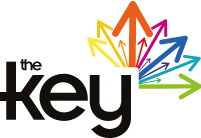In Gateshead, three members of the Youth Assembly’s feminism subgroup came together with a bold idea: to create their own digitised zines for young people. Zines are small booklets that are used as a tool for self-expression and activism. The group felt that creating their own zines on feminism was the perfect way to share their voices and spread ideas in a way that was both creative and accessible.
The group set out to produce three zines and design them themselves. This meant more than just writing content; it required collecting information, analysing what mattered most to their audience, and turning it all into something visually engaging.
The group decided to design three zines – but getting there meant rolling up their sleeves and taking on some serious challenges.
They started by gathering ideas, figuring out what mattered most to young people their age, and turning it into something bold, visual, and accessible. They weren’t just thinking about what to say – they were thinking about how to say it so that people would listen.
Each person brought their own strengths to the table: some were natural researchers; others had a sharp eye for design. And just like any real team project, it wasn’t all smooth sailing: “Because there was more of us, we were working at different paces… it was difficult to keep everyone engaged in the same way.”
That meant they had to learn to negotiate, prioritise ideas, and keep their focus on the bigger picture. From many zine designs, they narrowed it down to three strong messages that felt true to them.
The zines weren’t about shouting the loudest, they were about starting conversations. One of the group members said: “I think it’s just acknowledging that misogynistic views shouldn’t be normalised in society and maybe it will make people think twice about the way they act or just make them more aware about the history and how women had to fight for the rights that we have today.”
They explored myths like ‘men can’t be feminists’ and pushed back about stigma, reminding readers that feminism isn’t about attacking anyone, it’s about equality, visibility and respect.
Once the zines were finished, the group distributed them across school’s libraries, cafes, and other community spaces: “I think what’s so good about zines is that they’re quite small and easy to produce… you can leave them anywhere in the local community… [and] get so much information out of it.”
Learning by Doing
They learned to plan, problem-solve, and work as a team. They had to communicate their ideas clearly to adults in positions of authority and make sure their vision stayed front and centre.
Along the way, they each discovered new strengths: from learning how to make zines for the first time to growing in confidence when sharing their opinions: “Yeah, it’s definitely very validating… [it’s] encouraged me to talk about feminism outside of the group as well because I recognised that anyone can be a feminist.”
The Quacker Ducks project wasn’t just about making zines; it was about young people taking up space. One of the group members told us: “I think I’m very proud of the fact that we’re quite young and we’re striving to make an impact.”
What started as a simple idea grew into something powerful: a message of resistance, creativity, and hope, told through the voices of young feminists determined to be heard.
They’ve shown that when young people are trusted to lead, they don’t just create projects, they create change.
Their advice to others?
- “Work together as a group… it’s very important that you work together as a team.”
- “Do what you want to do.”
- “It’s an opportunity to exceed a goal, it can take you further than what would’ve been a quite small and meaningless project to something much more local and that has a wider impact.”
This project didn’t just result in three, impactful zines, it built confidence, sharpened skills, and gave young people the platform to challenge harmful narratives head-on. It’s proof that powerful things can come from small, determined groups.




